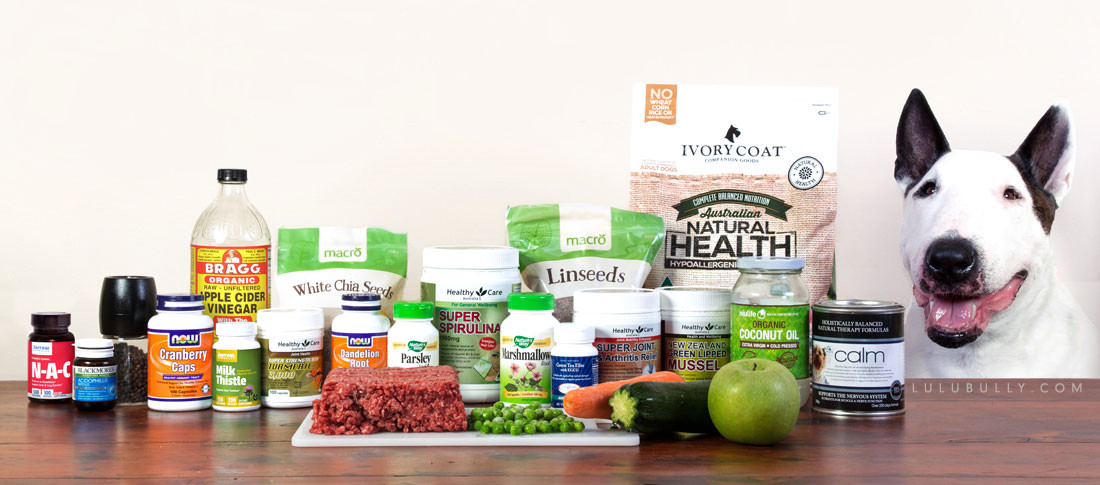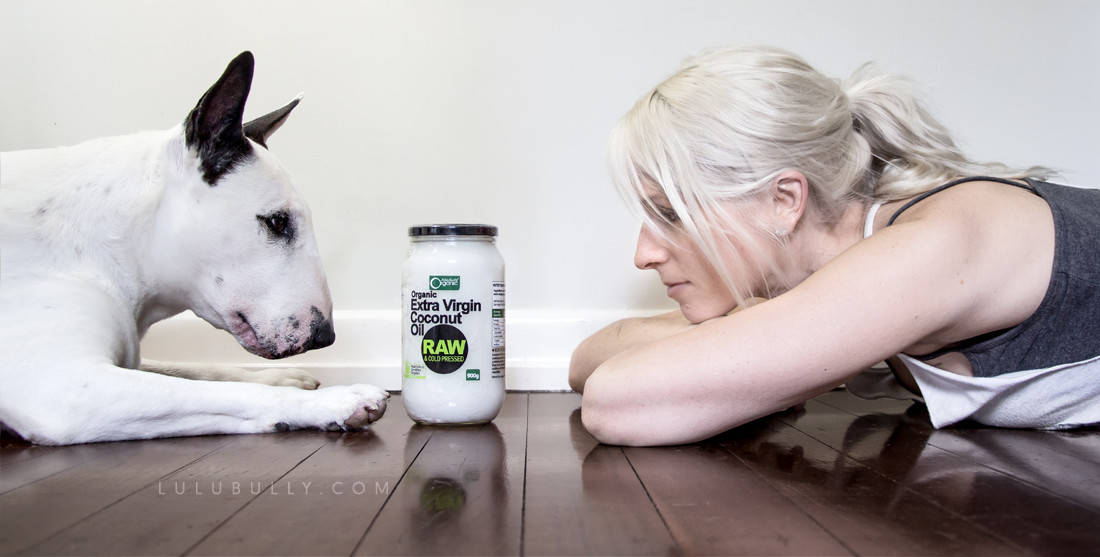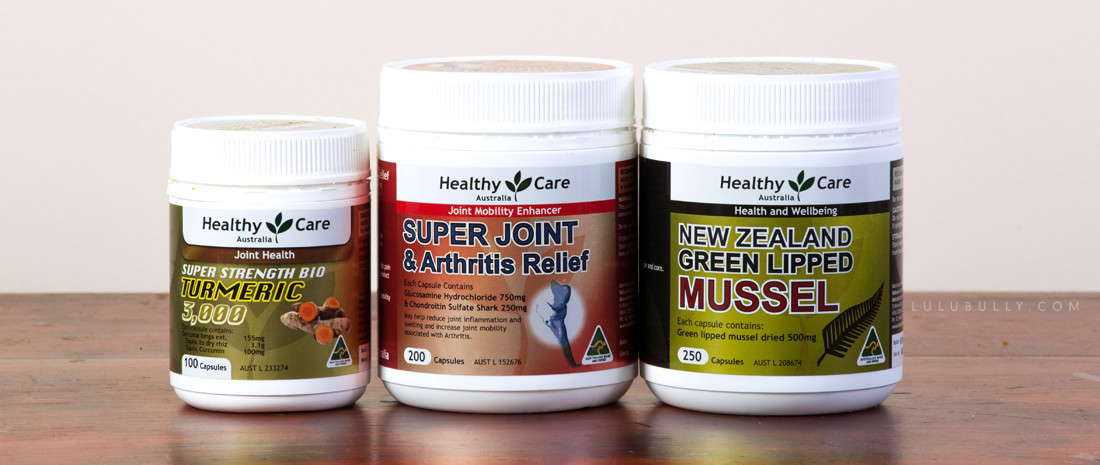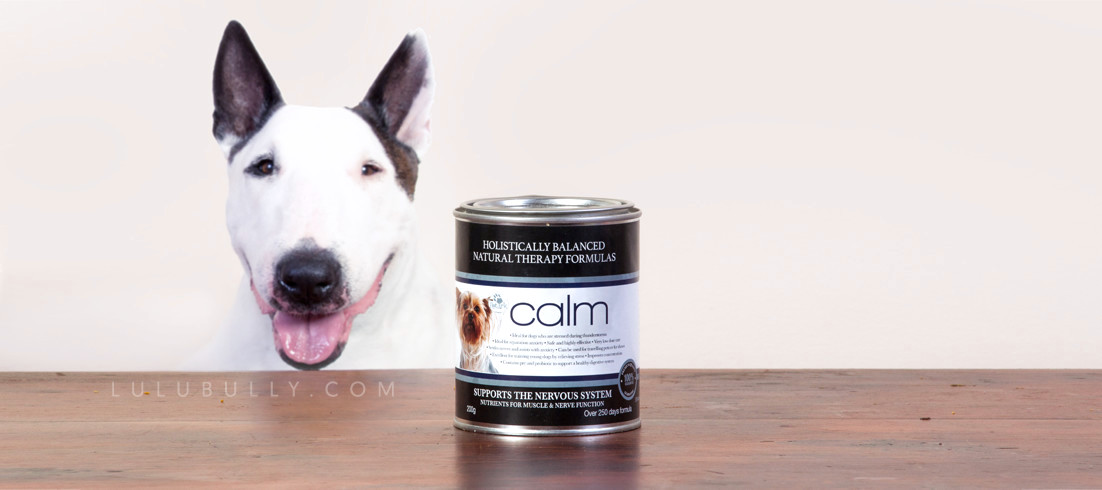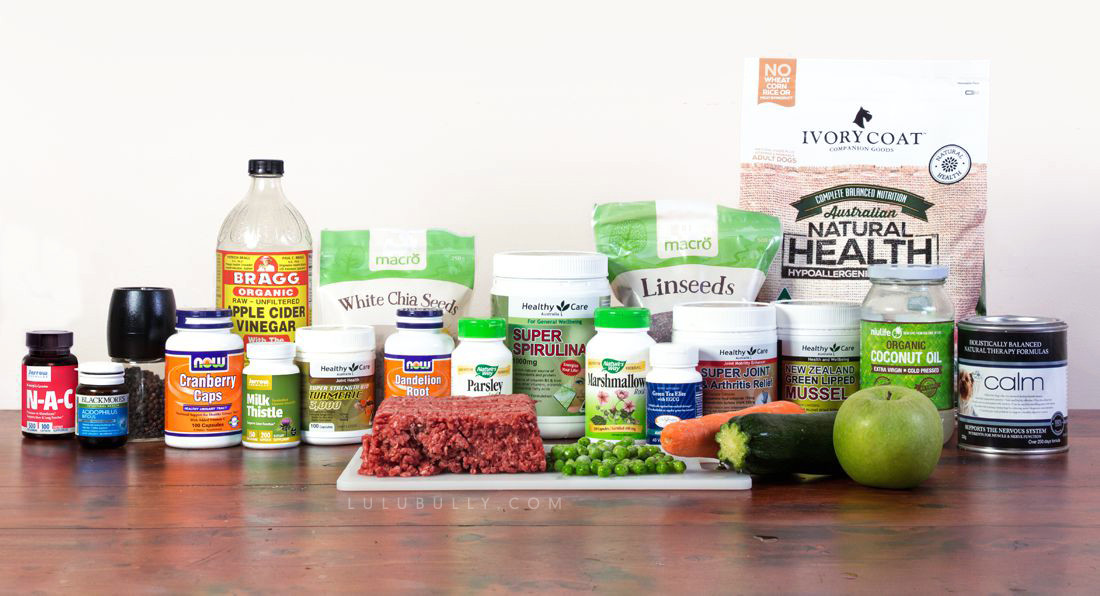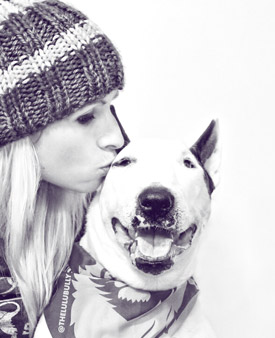CORE COMPONENTS
125g Quality Fresh Raw Meat
Quality and raw are the keywords here. As in fresh, fit for human consumption, quality meat. Not ‘meat byproduct’ as so often graces the ingredient lists of commercial, processed ‘dog food’ and most definitely free of flavours, colours, preservatives, sodium and nitrites.
It’s also very important to note here that the type of meat you choose for your dog can play a big role in their health as protein specific food sensitivities are becoming more and more common in dogs. Due to generation after generation of dogs being fed poor quality commercial dog food (our grandparents and parents didn’t have the information we have now!), that ‘food’ causing damage to stomach linings and immune systems, and those issues being imprinted in the form of genetic mutations and passed down to present our day puppies, it’s now not at all rare to find your dog may have a sensitivity to beef, chicken or lamb. So if you do have a dog with any skin, allergy, early-onset arthritic or immune issues it’s really important to do an elimination diet for each of those proteins for at least 6 weeks at a time to rule out sensitivity. Lulu had a beef sensitivity which effected her skin, sinuses and mobility significantly. If she had so much as a mouthful of steak from someone’s plate within a few days she’d break out in either hotspots or foot sores, get a runny nose or itchy ears and becomes noticeably less agile. I know of other bullies who also have beef sensitivities, and my mother’s spoodle is very sensitive to lamb (throws up, gets very itchy). Whether or not you discover your dog has any specific protein specific sensitivities I always recommend mixing up protein sources (avoiding sensitivities of course) as much as possible and feeding some of the more obscure meats when possible like rabbit, venison, turkey, chevon (goat), wallaby, kangaroo or fish.
Why raw? The natural enzymes in fresh raw meat are an essential component of a dog’s digestive process. A dog consuming mostly processed or cooked meat likely receives little or none of these natural enzymes and must rely on their body to manufacture many or all of the enzymes they need for healthy digestion. A dog’s pancreas produces protease, amylase, and lipase, but likely not enough to completely digest cooked food – this can result in indigestion, discomfort, gas, insufficient nutrient absorption, an imbalance of gut flora and or fungal overgrowth in the gut (which can in-turn effect skin condition and immunity).
While I’m an advocate for raw feeding, I personally don’t feed bones as Lulu is what’s known as a ‘hard chewer’. In her fast and furious approach to bones she often bites off chunks that are too large to swallow safely without risk of choking or blockage, and with a bull terrier’s strength of jaw the risk of cracking teeth (which can lead to painful abscesses and expensive surgery) is just too great. In lieu of bones I often slip in a spoonful broth and bone mash, a byproduct of bone broth I make weekly for myself, into her meal to give her an extra dose of bioavailable calcium and collagen. I also brush her teeth every second day so she doesn’t miss out on dental hygiene without bones in her diet.
For those who are similarly not keen on feeding bones but don’t regularly make bone broth (most of you reading this!), Chia seeds are a great source of calcium, magnesium, phosphorus and protein. 1 tsp of chia thrown in the spice grinder with the rest of the supplements will give a boost of those minerals essential to bone health.
Where to get it:
I buy raw meat for Lulu from either the local butcher or a local supermarket I trust.
125g Fresh Steamed and Mashed Veggies (and/or Puréed Raw) with Manuka Honey UMF 5+
With veggies (and meat) I try to mix it up from day to day or week to week.
The range of veggies I fed Lulu included: pumpkin, carrots, peas, green beans, cabbage, celery, zucchini and sweet potato. It’s important to purée or finely chop (ie. in a food processor), particularly when feeding raw veggies, because dogs don’t have the same mastication (chewing) process as humans. We have teeth and jaws designed for smashing and grinding the cell walls of plants (cellulose) which frees up the nutrients locked inside the cells. We also take more time to chew which allows the the digestive enzyme (amylase) present in saliva to get a jump start on the digestion process. Being a scavenging carnivore by biological design, your dog’s jaw doesn’t have the same side-to-side range of motion, nor the flat molars it takes to smash those cell walls, and we all know they rarely take the time to chew thoroughly before swallowing!
In order for a dog to be able to get any value out of a raw vegetable it has to have those cell walls broken up by pureeing or juicing. Cooking also breaks down the cellulose, but remember that heat can also alter/diminish nutrient content. Pumpkin and sweet potato are the only vegetable I always steamed for Lulu (nb. potatoes of any variety should never be fed raw). I never fed potato often, but when I did I choose to feed sweet potatoes rather than regular white potatoes because of their higher nutritional value, and white potatoes tended to upset Lulu’s tummy (sweet potatoes can also upset digestion if fed too often – I never feed them more than one meal a week).
I often add 1/4tsp of medicinal Manuka honey, with a UMF factor of at least 5+, to Lulu’s daily veggies. A particularly unique immune booster, the effects of feeding Manuka honey were been particularly evidenced in the resilience and repair of Lulu’s sensitive skin. Lulu also absolutely loved the taste of the Manuka honey and while, when applied topically, Manuka honey is renowned for it’s unique antibacterial properties, conversely, when consumed in the small amounts I feed Lulu, it has been proven to stimulate the of growth of beneficial bacteria (probiotics) in the gut. (Source)
When deciding whether to feed your dog a particular vegetable not on the list above I’d recommend Googling ‘<vegetable name> safe for dogs’ just to be sure certain that it’s ok. (NB. Never feed onions, garlic, leeks or shallots – all part of the allium family and are very toxic for dogs. Read more why you should never feed any of these vegetables HERE).
Where to get it:
Veggies: Fresh is best! I buy veggies from our local Saturday fresh fruit and veg market or a local trusted green grocer.
Manuka Honey: In Australia I buy raw natural Manuka Honey from a trusted apiarist at the local Brisbane farmer’s markets, or in a pinch I pick up either Barnes Naturals NPA/UMF 5+ honey here: http://www.chemistwarehouse.com.au/Buy/73989/Barnes-Naturals-Manuka-Honey-5-500g or Bramwell’s MGO 83+ (equiv. UMF 5) from Aldi.
NB. ‘UMF’ stands for Unique Manuka Factor and the accompanying rating describes the medicinal potency of the honey. The ‘UMF’ acronym is interchangeable with ‘NPA’ (Non-Peroxide Activity) ie. UMF 5+ is the same as NPA 5+. MGO is an abbreviation for Methylgloxal (one of the chemical indicators for Unique Manuka Factor) although the MGO value doesn’t translate directly to UMF. There’s a good MGO -> UMF calculator here: https://export-x.com/manuka-honey-umf-to-mgo-calculator/
125g Natural Grain-Free Biscuits/Kibble (Ivory Coat Hypoallergenic, Billy+Margot, Sunday Pets Holistic Grain-free or Ziwipeak)
Ivory Coat is made in Australia, sourced from natural Australian grown ingredients, and Sunday Pets and Ziwipeak are both made in New Zealand, sourced from natural New Zealand grown ingredients. All three are beautifully balanced natural formulas full of quality protein, good oils, vitamins and minerals making them the perfect component to round-out the nutritional profile of Lulu’s daily meals. For those in the UK/Canada/USA I’ve also spent some time researching equivalent brands available in your territories – see the ‘Where to get it’ section below for my recommendations.
All three brands make quite simply the best quality, genuinely hypoallergenic food I’ve come across in 16yrs of feeding a hyper-sensitive dog. The flavour of the quality ingredients in both also seem to be super palatable – Lulu was a fairly picky eater and she adored all three. Compare the top five ingredients on any of the above to others on the market and the quality speaks for itself. Ivory Coat and Sunday Pets are very reasonably priced – no more than the more big ‘scientifically formulated’, ‘vet endorsed’ brands (all with their fair share of fillers and preservatives). Ziwipeak is fairly expensive, but it really packs and extraordinary nutritional punch and, due to the pieces being softer and smaller, is great for older dogs who no longer have the full set of smashing nashers they were born with.
Once you’ve nailed your main fresh ingredients and chosen your supplementary quality holistic biscuits/kibble, my key tip for feeding both is to feed them separately. Fresh food and dry food are digested at a different rate, so for optimal digestive comfort and nutritional benefit feed them separately rather than mixed, ie. feed one in the morning, one in the evening, or just leave 15-20mins in between as I did with Lulu. She always received her fresh meal first and, a little while later, her biscuits – often in a treat ball or puzzle toy (good for the brain and digestion!).
Where to get it:
Ivory Coat and Billy+Margot are made in Australia and available with Australia-wide shipping from www.ivorycoat.com.au, https://www.billyandmargot.com/en-au or from selected quality local pet stores and Australian online pet stores.
Sunday Pets and Ziwipeak are made in New Zealand and are available in most quality pet stores in and around New Zealand. In Australia they’re available from a select few local pet stores and a number of online stores. I buy mine online here… Ziwipeak: https://www.petcircle.com.au/nav/brand/ziwi
For those in the UK I recommend AATU – it’s grain-free, dairy-free, filler-free and hypo-allergenic, with locally (UK) sourced high-quality protein and veggies in a very conscious, holistically-minded ingredient list: http://www.aatu.co.uk/nutrition
For those in the USA/Canada I recommend the Acana Heritage Range. It actually took me a lot of research to find a North American product that stacked up to those available in Australia/NZ/UK, and Acana’s Heritage Range is it (honestly, I haven’t been able to find any others that make the grade, including most of the ‘grain-free’ and ‘holistic’ brands that have made a name for themselves in that corner of the world). Acana’s Heritage range is grain and dairy-free, filler-free, hypoallergenic, biologically-appropriate, packed with high-quality protein and made in their Alberta, Canada and Kentucky, USA kitchens from fresh locally sourced ingredients. NB. It’s specifically their ‘Heritage’ range (all grain-free with a high protein ratio) that I recommend: https://acana.com/our-foods/heritage/
If you live in an area where none of the above are available just check out ingredients lists of the holistic grain-free products on www.ivorycoat.com.au, www.sundaypets.com.au, www.aatu.co.uk and www.acana.com/our-foods/heritage/ and try to find a grain-free, dairy-free, preservative-free, filler-free quality dry food with a similar balance of quality ingredients available in your location.
THE ESSENTIALS
1 dsp Organic Unfiltered Apple Cider Vinegar
For overall wellness – digestion, skin and coat health, ph balance, joint health, detoxification, immunity and allergy relief.
Apple Cider Vinegar (ACV) contains more than 30 important nutrients, 12 minerals, 6 vitamins, essential acids, several enzymes and is rich in pectin (good for heart health).
Added to food ACV has anti-bacterial and anti-fungal properties that support the immune system, deter intestinal fungal overgrowth (like candida) and promote good gut flora. A powerful detoxifying and purifying agent it supports the vital eliminatory organs – kidneys, bladder and liver. Rich in potassium, ACV supports muscle and bone health, tissue repair, arthritis relief, dental health and strong healthy toenails.
Apple cider vinegar is also the king of skin and hair remedies – diluted and applied topically it’s one of the most effective treatments for itchies, allergies, eczema, fungal and bacterial skin infections. Read more in my guide to treating eczema, pyoderma and pododermitis HERE.
Where to get it:
Available from most supermarkets, health food stores and some pharmacies. NB. the phrase ‘with The Mother’ is often written on the product packaging to indicate that the vinegar is ‘unrefined’ and still retains the natural probiotic rich sediment that has multiple health benefits.
Probiotic, quality blend
For digestive health, immune support, optimal nutritional absorption, skin and joint health. Long term probiotic supplementation plays a vital role in preventing the skin issues that plague many bull terriers.
The digestive tract is the largest immune reactive surface in a dog’s body. It is your dog’s first line of defence, exposed daily to pathogens, viruses, bacteria and food particles. When a dog’s gastrointestinal (GI) tract is healthy, it allows for the absorption of vitamins, minerals and amino acids, while at the same time preventing entry of disease-causing substances.
The amount of bacteria in a dog’s gut is believed to out-number the cells in its body. As with humans, a dog’s gut is an ecosystem teeming with approximately 1,000 different species of bacteria. Beneficial ‘good’ bacteria plays a vital role in healthy digestion, nutrient absorption and defence against pathogens and toxins. The aim should always be to ensure that good bacteria is the dominant force in the GI ecosystem. When a dog’s diet is less-than-optimal it allows bad bugs to infiltrate and overrun the good ones – this is called dysbiosis. Dysbiosis dramatically alters the defence mechanisms of the gastrointestinal tract, significantly impacting the immune system and inflammatory responses. The effects of a compromised immune system can be serious and as diverse as immune dysfunction, autoimmune disease, food allergies, behavioral disorders, joint pain, arthritis, eczema, dermatitis and nutritional deficiencies.
What causes dysbiosis?
Feeding grains (complex carbohydrates) can cause abnormal gut fermentation leading to an overgrowth of yeast and unfriendly bacteria and adversely effecting vitamin absorbtion.
Feeding foods with high insoluble fibre ‘filler’ content (ie. cellulose, corn or beat pulp) can prevent nutrient absorption by inhibiting nutrients from coming in contact with the mucosal surface.
Antibiotics! It’s very important to understand that antibiotics do not discriminate in the type of bacteria they destroy. They kill both the healthy and unhealthy bacteria. By compromising good bacteria levels, you increase your pet’s risk of intestinal infection and yeast overgrowth. ALWAYS make sure that for every course of antibiotics a quality pro-biotic is given during and after treatment.
Other internally given medications like worm tablets, flea/tick tablets, steroids, and anti-inflammatory meds like Rimadyl can be disruptive to the digestive system.
Stress. The stress hormone (cortisol) alters the way the body regulates normal functions, resulting in decreased production of gastric acid and immunoglobulin, subsequently lowering GI defences and allowing unfriendly bacteria to flourish.
Feeding a diet high in cooked or processed meat. Cooked meat lacks the natural enzymes dogs require to properly digest protein. Improperly digested proteins can contribute to imbalance and intestinal permeability (microscopic holes in the intestinal wall) causing abnormal immune responses and inflammation. Processes meats (like bacon, salami, deli meats, hamburger patties) are high in sodium (not good for dogs) and preservatives like nitrites that can inhibit repair to damaged intestinal mucosa.
Symptoms of dysbiosis in dogs: Joint stiffness, itchy skin, fungal infections (ears, skin), acute environmental allergies, lethargy, irritability, bloating, diarrhoea, gas.
It’s important to replace good bacteria, like acidophilus and bifidus, when digestive health has been disrupted by any of the factors mentioned above. If you suspect dog is suffering from dysbiosis, supplementing their diet with a quality probiotic will at least do no harm, and most likely dramatically increase their quality of life.
Where to get it:
The best probiotic I’ve found found for Lulu is Protexin Paste (also available in powder and liquid forms). Just follow the guide on the tube for dose rates. It’s reasonably priced and available through most vet supply outlets (and some vet clinics). I get mine locally from The Vet Shed and they also ship Australia-wide from their online store here (if you’re buying the paste or liquid just remember to choose the refrigerated delivery option during checkout): https://www.thevetshed.com.au/buy/protexin-paste-30ml/PROTP30
For those outside Australia, if Protexin (or a local equivalent) isn’t available where you are I’d recommend just finding a simple human-grade acidophilus and bifidus formula and feeding 1-2 billion CFU per day.
2 heaped tsp Flax seeds (linseeds), freshly ground
For overall wellness, immunity, heart health, longevity, digestion, healthy skin, coat, eyes and nails.
Flax seeds are a rich source of micronutrients, dietary fibre, manganese, vitamin B1, and the essential fatty acid alpha-linolenic acid (a.k.a. ALA or omega-3).
The ALA in flax seeds support healthy skin and hair by providing the essential fatty acids and b-vitamins that reduce dryness, flakiness and improve symptoms of eczema and dermatitis. ALA also helps to prevent dry eye syndrome.
Flax seeds are also one of natures richest sources of lignans. Lignans are unique fiber-related polyphenols that provide antioxidant benefits for longevity, hormone balance and cellular health. Polyphenols support the growth of probiotics in the gut and may also help protect against intestinal fungal overgrowth (like candida). The ALA in flax seeds can also help protect the lining of the digestive tract, reduce gut inflammation and maintain digestive health. A balanced, healthy digestive system is the foundation for a strong and balanced immune system. ALA omega-3 fatty acids are also believed to prevent the growth of cancerous cells by preventing malignant cells from clinging to healthy cells and the lignans in flaxseed have antiangiogenic properties preventing tumors from forming new blood vessels.
Where to get it:
Available from most supermarkets, health food stores and some pharmacies.
12.5mg of Zinc Picolinate
For skin health, immunity, DNA and cell health and overall wellness.
Zinc plays a vital role in immune function, protein synthesis, wound healing, cell division and DNA synthesis. Zinc also supports optimal growth and development young, growing dogs. The body has no natural zinc retention system, which makes daily zinc supplementation a necessity for optimal health. It’s also a key factor in preventing conditions like naso-digital keratosis (fibrous growths from the nose and/or paw pads) and hyper-keratosis (where the skin doesn’t properly let go of shed hair, contributing to in-grown hair type eczema and pyderma/hotspots) not uncommon in bull terriers and other bull breeds. If you have a bull terrier with skin issues, zinc supplementation at the right dose can be extremely helpful in healing and preventing eczema and hotspot break outs.
There are a number of different supplemental forms of zinc and choosing the right one is important – they’re not all created equal. I use zinc picolinate – one of the most bioavailable forms – for Lulu and for myself. Zinc citrate and zinc gluconate are also good options. Take care to avoid buying zinc oxide (often listed in cheaper dog food ingredients) as it’s one of the least bioavailable (ie. you might as well not bother, it won’t be absorbed or used).
While you certainly don’t want to have a dog with a zinc deficiency, it’s equally important not to over-supplement with zinc (as over-supplementation can lower copper levels). So important to work out the correct dose rate according the weight of your dog. ThePossibleCanine has a great page on zinc supplementation for dogs with an easy formula for working out dose rate. The 12.5mg daily dose I supplemented Lulu on was a maintenance dose and about half what’s recommended by TPC’s equation (22.5mg) for her weight, but I like to work it that way knowing that I can bump up to the full dose during short periods when she needs extra immune or skin support (ie. allergy season), and not worry about over-doing it and effecting her copper levels.
Where to get it:
I use the Thompson 25mg Zinc Picolinate tablets from iHerb (available worldwide) for both Lulu and I. For Lulu I cut the 25mg tabs in half to get Lulu’s 12.5mg and just tuck them in a little raw minced meat. They do have a little bit of a bitter slightly metallic taste, so I definitely recommend stealth tactics when feeding rather than grinding them up with everything else… http://au.iherb.com/product-reviews/thompson-zinc-picolinate-25-mg-60-tablets/16119/
2000mg (or 1/2 tsp) of Deep Sea Kelp
Thyroid health, adrenal health, glandular system health and overall wellness.
Kelp contains vitamins A, B1, B2, B, C & E, minerals and trace elements iron, potassium, magnesium, phosphorus, calcium, selenium, iodine, copper, cobalt, sulphur and baron, as well as amino acids, making it a a rich natural mix of salts and minerals and an awesome natural superfood for our furry friends (and us!). This fantastic blend of of salts and minerals (particularly iodine, magnesium, potassium, iron and calcium) help keep your dog’s entire glandular system, the pituitary gland, the adrenal gland, as well as the thyroid gland healthy and functioning at optimal level. Supporting a healthy glandular system is key to preventing hypothyroidism (under-active thyroid gland) which can lead to a raft of other health issues, and adrenal gland dysfunction like Cushing’s Disease, both of which are increasingly common in senior dogs and can seriously effect quality of life and longevity.
The thyroid gland is responsible for regulating the metabolism, and also supports heart and digestive function. If your senior dog seems particularly tired and lacking energy, uninterested in life (and the things that would normally excite them), is moody or grumpy, is shedding excessively or having trouble re-growing hair, doesn’t seem as cognitively sharp as they should be, or is struggling with an unexplained weight gain it could be the result of a sluggish thyroid or general glandular dysfunction for which kelp supplementation can do wonders. I’ve been supplementing Lulu’s food with kelp daily since she was a puppy, and throughout her senior years it’s done wonders to help maintain her quality of life, energy levels and consistent wellness.
Hypothyroidism can effect keratin levels – keratin is the structural protein that protects epithelial cells and is the key material that makes up the outer layer of skin and hair for both dogs and humans. Which means that similarly to zinc (see above), thyroid support (through kelp supplementation) can also a key factor in preventing conditions like naso-digital keratosis and hyper-keratosis not uncommon in bull terriers and other bull breeds.
Where to get it:
Lulu gets 2 x 1000mg tablets per day tucked into some minced meat, or you can grind them up with the other supplements to be mixed in with breakfast or dinner. You can also get kelp in powder form, just make sure that it is fresh (ie. has been transported/stored sealed in an air-tight container) and that it’s specifically deep sea kelp to ensure maximum nutritional value and iodine content, and minimal environmental toxins (compared to that harvested closer to the shores near pollution-happy humans and their various industrial endeavours).
You’ll find kelp at most good health food stores and some pharmacies. Here in Australia I use the Nature’s Own Deep Sea Kelp 1000mg for both Lulu and I…. http://www.chemistwarehouse.com.au/buy/55341/Nature-s-Own-Kelp-1000mg-200-Tablets
For those outside Australia check out your local health food store or iHerb have a number of options including this one by Nature’s Way: http://www.iherb.com/Nature-s-Way-Kelp-600-mg-180-Capsules/1934
125mg Curcumin (the anti-inflammatory component in turmeric)
Joint health, arthritis relief, cognitive function, heart health, metabolism. Nature’s most powerful anti-inflammatory and a very strong antioxidant.
Curcumin is the main active ingredient in turmeric. Curcumin fights inflammation at a cellular level blocking NF-kB, a molecule that travels into the nuclei of cells and turns on genes related to inflammation. NF-kB is believed to play a major role in many chronic disease. Curcumin also boosts levels of the brain hormone BDNF, which increases the growth of new neurons and fights various degenerative processes in the brain. The innate ability of curcumin to combat chronic inflammation systemically also makes it a powerful preventative and treatment for joint related issues like arthritis.
Curcumin protects against heart disease by improving the function of the endothelium, the lining of the blood vessels, to regulate blood pressure, blood clotting and various other factors integral to heart health. Studies have shown that curcumin can reduce angiogenesis (growth of new blood vessels in tumors), metastasis (spread of cancer), as well as contributing to the death of cancerous cells.
NB. I always specifically buy the ‘CurcuWin®’ proprietary blend (available from a number of different brands) as I’ve found it noticeably gives specifically better results for Lulu than any other form. If you’re not using the CurcuWin® blend just always make sure to feed turmeric together with coconut oil and ground black pepper. Why? Turmeric is fat-soluble. Without fat the active component in turmeric, curcumin, has a difficult time making it past the stomach, into the small intestine and into the blood where it can offer the greatest benefits. Studies have shown that when combined with ground black pepper the piperine in the pepper enhances curcumin’s bioavailability at least 1,000 times. When these three ingredients are fed together the curcumin in the turmeric is considered ‘activated’ making it bio-available for optimal absorption and maximum health benefits.
Where to get it:
I most often buy CurcuWin® curcumin from iHerb as it’s the most economical (see link below) but in a pinch there’s also a good one made by Swisse here in Australia: http://www.chemistwarehouse.com.au/buy/79448/Swisse-Ultiboost-Curcumin-30-Capsules
Worldwide it’s available from iHerb here: https://au.iherb.com/pr/Natrol-Extra-Strength-Turmeric-60-Capsules/69074
A Pinch of Black Pepper, freshly ground
For optimal absorption of all the other bioavailable nutrients in your dog’s food and supplement regime.
Contains piperine an important component to include when feeding turmeric. Together with coconut oil the piperine enhances absorption of the curcumin (the beneficial part) in turmeric (it’s also enhances absorption of many other nutrients). I always add black pepper and coconut oil when supplementing with turmeric.
Piperine has also been found to help regulate inflammation caused by inappropriate immune response.
Where to get it:
Already in your kitchen! (Just make sure it’s pure black or white pepper, or a blend of black, white and green. Don’t use any blends that contains red/pink peppercorns as actually aren’t ‘peppercorns’ at all they’re dried berries from a South American shrub (Schinus molle), contain no pipeline and can be irritating to the stomach of some humans/animals.
1 dsp Unrefined Virgin Coconut Oil
For general wellbeing, skin and coat health, muscle health, detox, immunity, healthy digestion and gut flora.
Rich in lauric acid (a medium-chain fatty acid) known for its unique anti-viral, anti-fungal, anti-microbial, anti-ulcerogenic, anti-nociceptive (pain relief), anti-inflammatory, anti-hypercholesterolemic (cholesterol lowering), hepato-protective (liver supporting), anti-carcinogenic and immune-boosting effects.
Unrefined virgin coconut oil is also rich in phytonutrients allowing for optimal cellular function and communication. When cells are communicating effectively, the proper sequence of enzymatic reactions take place. This all leads to biochemical reactions creating healthier tissues and organ systems, detoxification of foreign substances, a strong immune system, and muscles that will perform when called upon. The polyphenol antioxidants in virgin coconut oil are known to help balance stress hormones and support cognitive function.
Together with the ground black pepper, coconut oil enhances absorption of the curcumin (the beneficial part) in turmeric. I always add black pepper and coconut oil when supplementing with turmeric.
Only buy virgin or unrefined coconut oil for supplementation – if it doesn’t specify either, don’t use it. Refined coconut oil goes through bleaching and heat-treating processes that add toxins and destroy the beneficial elements of the natural oil.
Where to get it:
Available from health food stores, organic stores, quality supermarkets and some chemists.
50mg of Ubiquinol (activated Co-Enzyme Q10) every second day (I split open the softgel and squeeze the contents into a teaspoonful of mince or anything else tasty that’s handy, ie. chicken skin).
Co-Enzyme Q-10 is a powerful antioxidant that not only fights oxidative damage, increases energy and cognitive function, but also promotes healthy circulation, optimises immune function, supports the healthy presence of oxygen in tissues, supports cardiovascular health, promotes gastrointestinal health and healthy gums. Ubiquinol is an activated form CoQ10 that is most easily absorbed and used by the body, transported by medium chain fatty acids. It’s a particularly important supplement for seniors as natural levels of CoQ-10 decline with age.
For her body weight I could have fed Lulu one every day, but as it really does provide a noticeable increase in energy I found that every second day provided more of a balanced energy lift and prevented her from acting too much like a geriatric Super Girl and potentially hurting herself by playing too hard (yeah, it’s a bull terrier thing!). Again, because of the noticeable energy lift, I always feed Ubiquinol in the morning, rather than at night, otherwise she’d be gearing up for her third hallway hucklebutt as the rest of us are getting ready for bed.
Where to get it:
I use this particular Ubiquinol by Healthy Origins (it’s free from other additives that some Ubiquinol supplements commonly include), available from iHerb with worldwide shipping: http://au.iherb.com/Healthy-Origins-Ubiquinol-Kaneka-QH-50-mg-60-Softgels/8211

